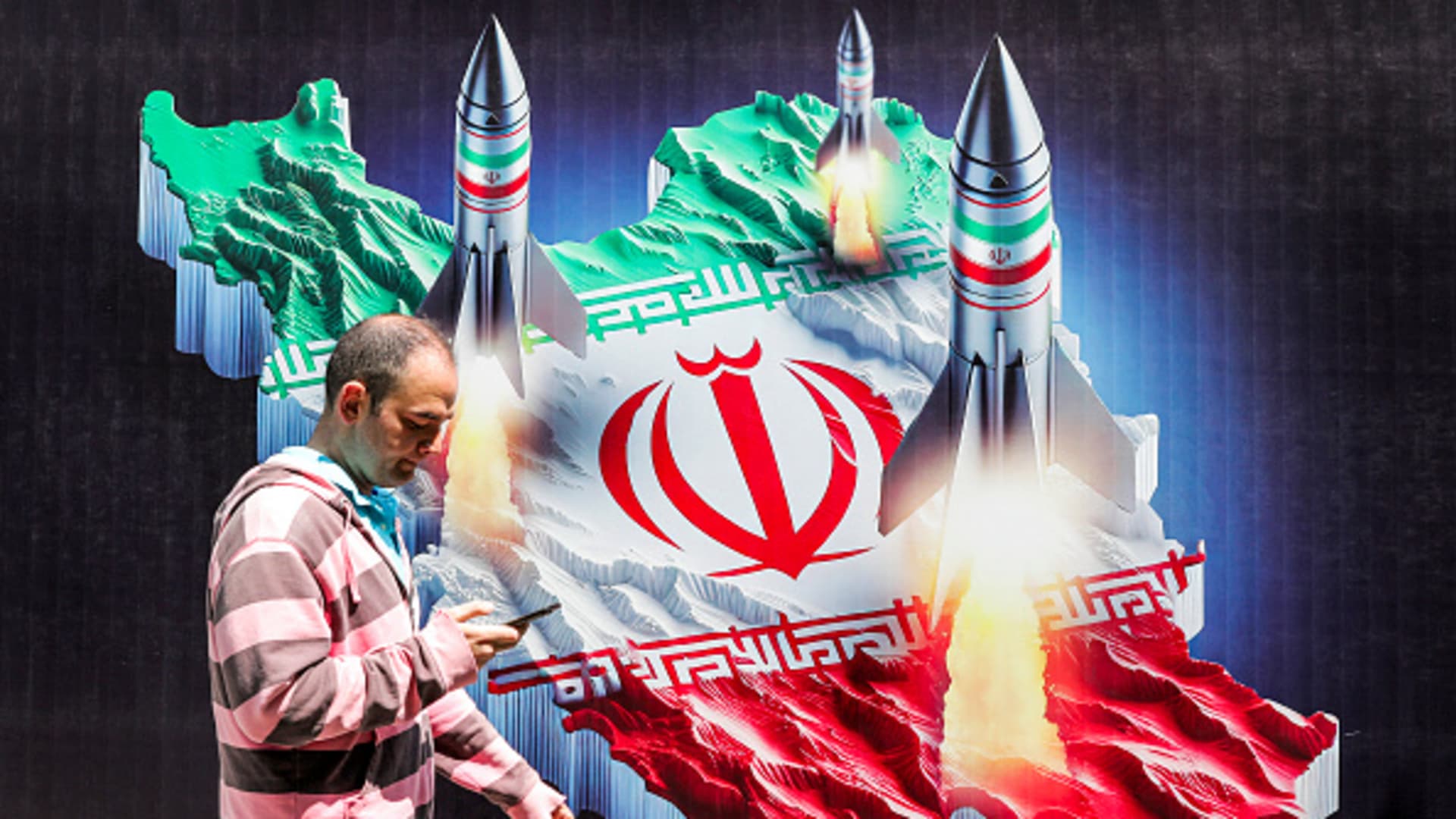The oil market has brushed off Iran’s weekend air assault against Israel, with futures trading as much as 1.5% lower on Monday. Where prices go from here, however, depends on how Israel responds. Crude oil futures had already priced in the risk as Iran had telegraphed an attack was looming, according to Maximilian Layton, head of commodities strategy at Citi. U.S. crude and the global benchmark Brent are up more than 2% since Israel bombed an Iranian diplomatic building in Damascus, Syria, earlier this month, the event that triggered Tehran’s weekend assault. “What is not priced into the current market, in our view, is a potential continuation of a direct conflict between Iran and Israel,” Layton told clients in a note. Oil prices could spike above $100 a barrel depending on how Israel responds to the attack, the analyst wrote. “An example of this could be if Israel moved to directly reduce Iran’s domestic uranium enrichment program,” Layton wrote. Barring such an escalation, Citi views the geopolitical political tensions as now priced in, with the bank raising its short-term Brent forecast to $88 a barrel, up from $80 previously. @CL.1 YTD mountain WTI year to date Israel’s War Cabinet appears to be divided right now with a hawkish faction advocating a strong response aimed at hitting Iran’s military capabilities, while others favor building an international coalition to contain the threat posed by Tehran and its Hezbollah allies in Lebanon, according to a Saturday research note from RBC Capital Markets. “Market participants have decided that this chapter of this war story is over for now,” RBC strategist Helima Croft told CNBC’s ” Squawk on the Street ” on Monday. “But the war cabinet has not made a decision yet on how to respond to the attacks over the weekend — you could still see some significant Israeli retaliation.” The weekend barrage of more than 300 drones, ballistic and cruise missiles was the first time the Islamic Republic has directly attacked Israel from Iranian territory. The assault was a “dramatic departure for Tehran” which has preferred to hit Israel through its proxies, according to JPMorgan commodities strategist Natasha Kaneva. “The attack is seen as potentially rewriting the rules of engagement between the two countries and could trigger an Israeli response that threatens a full-scale regional war,” Kaneva told clients in a note. Attack ‘well-telegraphed’ Iran’s attack, though unprecedented, did little actual damage as Israel and the U.S. intercepted nearly all the drones and missiles. Iran’s mission to the United Nations said the current round of hostilities is “concluded,” describing the attack as self-defense. The Islamic Republic warned, however, it would strike harder next time if Israel responds to the weekend attack. “The well-telegraphed and relatively limited nature of Iran’s attack suggests it was calibrated to be a contained retaliation for the Israeli bombing of its embassy in Damascus on April 1 and is not intended to be escalatory, consistent with public statements made by Iranian officials,” Goldman Sachs commodity strategist Daan Struyven told clients in a note. JPMorgan is maintaining its base case of Brent at $90 per barrel through May and then $85 in the second half of 2024. The main players in the Middle East have strong incentives to keep the conflict contained, according to the investment bank. Russian production cuts are actually more bullish than Middle East tensions and could push Brent to $100 by September, according to the bank. There is a risk that further escalation could lead to a disruption in the Strait of Hormuz, though which about 30% of the world’s seaborne oil passes, according to JPMorgan. An Iranian blockade would supercharge oil prices, but the risk is low given that the strait has never been closed off despite many threats by Tehran to do so over the past four decades, according to the bank. “They can’t close the Strait of Hormuz, but they can do significant damage to energy infrastructure, to vessels in the region,” RBC’s Croft told CNBC on Monday, referring to Iran’s capabilities. Oil prices should fade unless there is a further round of escalation, according to Jan Stuart, global energy strategist at Piper Sandler. Potential threats include Iran seizing ships associated with Israel in the Strait of Hormuz; Israel attacking Iranian oil and gas assets; or Iran striking energy assets of its neighbors if Israel hits too hard. “We are afraid this affair is very far from concluded,” Stuart told clients. “Disruption risk has escalated.”
Wall Street’s scenarios for the Israel-Iran conflict from here and its impact on the oil market













